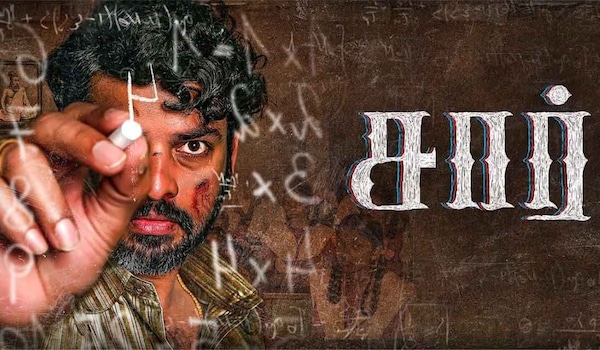Sir Movie Review: An utterly messy and unruly take on education and mental illness
Sir Movie Review: The film attempts to address casteism and the importance of education but falters with a problematic portrayal of mental illness and stalking.

Last Updated: 08.13 AM, Oct 18, 2024
Sir Movie Story
Sivanandam (Vemal) comes from a family of teachers. After feeling shameful that he is labeled as the grandson of a mentally unstable grandfather, he comes back as an adult to his village. Sivanandam has taken up after his grandfather and father Ponarasan (Saravanan), and becomes the teacher at the school in the village. However, not all seem to be going right after certain anti-social elements want to thwart the educational institute for their selfish deeds.
Sir Movie Review
It is no brainer to understand that Sir talks about the importance of education and the presence of school in a village. It is often said that one learned man can raise a village. Well, here there are three generations of learned men, and yet they seem to be stuck in a conundrum of situations about mental illness. We are shown Sivanandam’s grandfather who was once a teacher, is now mentally ill and tied to sleep outside the house by his family. He is rebuked by the children of the village, and so is Sivanandan who is referred through his deranged relative. So naturally when the grandfather passes away, Sivanandan is more than relieved to get rid of his nickname rather than rue over his dead family member. But after several years, when Ponarasan meets with an accident and injures his head, he voluntarily takes the rusted chain used for his father, off their roof to tie himself up. Even if the excuse the film makes is that it is a period film set in the 1900s, and knowledge on mental health is scarce, the protagonist being a teacher professing the importance of education fails the motive of the film. If that is not enough, we often see a student getting tea for the teachers, and the film nowhere makes it a point to highlight and talk against it.
Sir is a film that wants you to empathize with its characters and projects itself to be a progressive film about three generations of men wanting to make sure the village school is intact. But in the process, becomes the most regressive film with its projection on mental health and stalking. When a learned man and teacher, sneak into a pond to catch a glimpse of his lady love taking a bath albeit to the latter’s knowledge, Sir slopes to becomes obnoxious. It is further reiterated when the hero’s friend casually slides in the idea to impregnate the girl of dreams, to cox her. Even as the character whose advice may not come from a noble background, it still feels uncomfortable when a protagonist who is also a teacher, does not make it strong to defend the statement. From being obnoxious, the film slips into being problematic.
Also read: Soori and Vilangu series director Prasant join hands, here is all we know about the project
On a larger scale, Sir takes on the issue of casteism that plagues the country, especially the rural pockets. Land becomes a place of debate, and the destruction of the school paves the way for the power dynamics to remain instilled. But the film barely attempts to highlight the importance and advantage of a learned man, when it makes its protagonist also take up violence to take down the evil forces. An eye for an eye doesn’t help this film that talks about a family trying to profess the importance of education.
Sir Movie Verdict
Despite talking about the importance of education, Sir becomes an irresponsible film that forgets what it wants to profess in the chaos of violence. For all its take on mental illness, and casual problematic takes on rape and stalking, Sir falls under the category of films that might have good intentions but sprinkles it with morally incorrect concepts.
Subscribe to our newsletter for top content, delivered fast.

